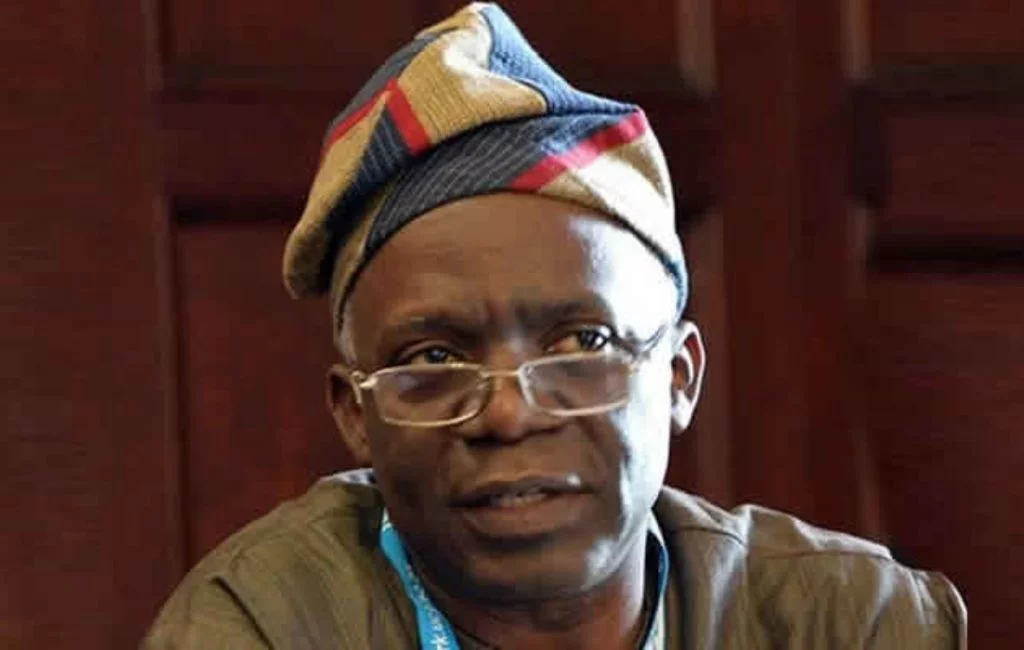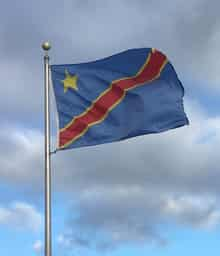Headline
Why ECOWAS Can’t Justify Intervention In Niger Without UN’s Approval – Falana [SEE LEGAL REQUIREMENTS]

Human rights lawyer, Femi Falana, SAN, has stated that the Economic Community of West African States needs to be authorised by the United Nations before it can intervene in restoring democratic rule in the military-held Niger Republic.
Coup plotters led by the head of presidential guards, Gen. Abdourahamane Tchiani, held to power after ousting democratically-elected president, Mohamed Bazoum,
In response, the West African bloc, led by President Bola Tinubu, issued sanctions and threatened military intervention in the Sahel region after a seven-day ultimatum was issued.
Nigeria had cut power supply with Niger Republic, who, in turn, cancelled major military operations with France, The PUNCH reports
However, Falana, in a statement released on Sunday, August 6, cautioned that, “the conduct of ECOWAS, as a regional arrangement, is subject to the provisions of the United Nations Charter, particularly article 53(1) and general international law.”
READ ALSO: Coup: Tinubu Meets With Northern Govs Sharing Boundary With Niger
He said, “In addition to the above constitutional mandate, ECOWAS is required to seek and obtain the authorisation of the UN Security Council to launch an attack on a sovereign nation pursuant to article 53(1) of the United Nations Charter. Article 53(1) provides in part, “The Security Council shall, where appropriate, utilise such regional arrangements or agencies for enforcement action under its authority. But no enforcement action shall be taken under regional arrangements or by regional agencies without the authorisation of the Security Council…”
“This means that the conduct of the ECOWAS, as a regional arrangement, is subject to the provisions of the United Nations Charter, particularly article 53(1) and general international law,” he added.
Falana, therefore, stated that it’d be illegal if ECOWAS launches any intervention inNiger Republic without the approval of the UN Security Council.
Furthermore, the statement added, “It is also clear that any intervention by ECOWAS, apart from being subject to the authorisation of the Security Council, must be on a collective basis and not a unilateral one.
“In the absence of explicit Security Council authorisation, any intervention by the ECOWAS would be illegal, unless it concerns a situation of self- defence, which is clearly not the case in the situation of the planned intervention in Niger.”
Falana mentioned that, according to section 5(4) of the Constitution of Nigeria 1999 (as amended), the president must seek the approval of both houses of the National Assembly.
See the full statement below:
LEGAL REQUIREMENTS FOR DECLARATION OF WAR AGAINST NIGER REPUBLIC
READ ALSO: Coup: Why President Tinubu Can’t Deploy Troops To Niger – SANs
Notwithstanding the resolution of the Economic Community of West African States to resort to the use of force to flush the military junta in Niger in a bid to restore President Mohamed in Bazoum, the Bola Tinubu administration is mandatorily required to seek the approval of both houses of the National Assembly. This is in compliance with section 5(4) of the Constitution of Nigeria 1999 (as amended), which stipulates as follows:
“(4) Notwithstanding the foregoing provisions of this section:
(a) the President shall not declare a state of war between the Federation and another country except with the sanction of a resolution of both Houses of the National Assembly, sitting in a joint session; and
(b) except with the prior approval of the Senate, no member of the armed forces of the Federation shall be deployed on combat duty outside Nigeria.
However, by virtue of section 5(5) thereof, the President, in consultation with the National Defence Council, may deploy members of the armed forces of the Federation on a limited combat duty outside Nigeria if he is satisfied that the national security is under imminent threat or danger:
Provided that the President shall, within seven days of actual combat engagement, seek the consent of the Senate and the Senate shall thereafter give or refuse the said consent within 14 days.
READ ALSO: Niger Coup: 3 Decisions For West Africa As Deadline Nears
In addition to the above constitutional mandate, the ECOWAS is required to seek and obtain the authorisation of the UN Security Council to launch an attack on a sovereign nation pursuant to article 53(1) of the United Nations Charter. Article 53(1) provides in part, “The Security Council shall, where appropriate, utilise such regional arrangements or agencies for enforcement action under its authority. But no enforcement action shall be taken under regional arrangements or by regional agencies without the authorization of the Security Council….”
This means that the conduct of the ECOWAS, as a regional arrangement, is subject to the provisions of the United Nations Charter, particularly article 53(1) and general international law.
Therefore, the ECOWAS can not justify any intervention in Niger without the authorisation of the Security Council.
It is also clear that any intervention by the ECOWAS, apart from being subject to the authorisation of the Security Council, must be on a collective basis and not a unilateral one.
In the absence of explicit Security Council authorisation, any intervention by the ECOWAS would be illegal, unless it concerns a situation of self- defence, which is clearly not the case in the situation of the planned intervention in Niger.
Femi Falana SAN
The Chair,
Alliance on Surviving Covid 19 and Beyond
6th August, 2023.
Headline
South Korea, Japan Protest China, Russia Aircraft Incursions

South Korea and Japan reacted furiously on Wednesday after Chinese and Russian military aircraft conducted joint patrols around the two countries, with both Seoul and Tokyo scrambling jets.
South Korea said it had protested with representatives of China and Russia, while Japan said it had conveyed its “serious concerns” over national security.
According to Tokyo, two Russian Tu-95 nuclear-capable bombers on Tuesday flew from the Sea of Japan to rendezvous with two Chinese H-6 bombers in the East China Sea, then conducted a joint flight around the country.
The incident comes as Japan is locked in a dispute with China over comments Prime Minister Sanae Takaichi made about Taiwan.
READ ALSO:China Backs Nigeria, Warns Against Foreign Interference
The bombers’ joint flights were “clearly intended as a show of force against our nation, Defence Minister Shinjiro Koizumi wrote on X Wednesday.
Top government spokesman Minoru Kihara said that Tokyo had “conveyed to both China and Russia our serious concerns over our national security through diplomatic channels”.
Seoul said Tuesday the Russian and Chinese warplanes entered its air defence zone and that a complaint had been lodged with the defence attaches of both countries in the South Korean capital.
“Our military will continue to respond actively to the activities of neighbouring countries’ aircraft within the KADIZ in compliance with international law,” said Lee Kwang-suk, director general of the International Policy Bureau at Seoul’s defence ministry, referring to the Korea Air Defence Identification Zone.
READ ALSO:Trial For South Korean Woman Accused Of ‘Suitcase Murders’ Starts Today
South Korea also said it deployed “fighter jets to take tactical measures in preparation for any contingencies” in response to the Chinese and Russian incursion into the KADIZ.
The planes were spotted before they entered the air defence identification zone, defined as a broader area in which countries police aircraft for security reasons but which does not constitute their airspace.
Japan’s defence ministry also scrambled fighter jets to intercept the warplanes.
Beijing later Tuesday confirmed it had organised drills with Russia’s military according to “annual cooperation plans”.
READ ALSO:South Korean Actress Kim Sae-ron Found Dead In Seoul Apartment
Moscow also described it as a routine exercise, saying it lasted eight hours and that some foreign fighter jets followed the Russian and Chinese aircraft.
Since 2019, China and Russia have regularly flown military aircraft into South Korea’s air defence zone without prior notice, citing joint exercises.
In November last year, Seoul scrambled jets as five Chinese and six Russian military planes flew through its air defence zone.
Similar incidents occurred in June and December 2023, and in May and November 2022.
READ ALSO:Russia Insists Ukraine Must Cede Land Or Face Continued Military Push
Meanwhile, Tokyo said Monday it had scrambled jets in response to repeated takeoff and landing exercises involving fighter jets and military helicopters from China’s Liaoning aircraft carrier as it cruised in international waters near Japan.
It also summoned Beijing’s ambassador after military aircraft from the Liaoning locked radar onto Japanese jets, the latest incident in the row ignited by Takaichi’s comments backing Taiwan.
Takaichi suggested last month that Japan would intervene militarily in any Chinese attack on the self-ruled island, which Beijing claims as its own and has not ruled out seizing by force.
AFP
Headline
Thousands Reported To Have Fled DR Congo Fighting As M23 Closes On Key City

Fierce fighting rocked the eastern Democratic Republic of Congo on Tuesday as the Rwanda-backed M23 militia rapidly advanced towards the strategic city of Uvira, with tens of thousands of people fleeing over the nearby border into Burundi, sources said.
The armed group and its Rwandan allies were just a few kilometres (miles) north of Uvira, security and military sources told AFP.
The renewed violence undermined a peace agreement brokered by US President Donald Trump that Kinshasa and Kigali signed less than a week ago, on December 4.
Trump had boasted that the Rwanda-DRC conflict was one of eight he has ended since returning to power in America in January.
READ ALSO:Ambassadorial Nominees: Ndume Asks Tinubu To Withdraw List
With the new fighting, more than 30,000 people have fled the area around Uvira for Burundi in the space of a week, a UN source and a Burundian administrative source told AFP.
The Burundian source told AFP on condition of anonymity he had recorded more than 8,000 daily arrivals over the past two days, and 30,000 arrivals in one week. A source in the UN refugee agency confirmed the figure.
The Rwanda-backed M23 offensive comes nearly a year after the group seized control of Goma and Bukavu, the two largest cities in eastern DRC, a strategic region rich in natural resources and plagued by conflict for 30 years.
Local people described a state of growing panic as bombardments struck the hills above Uvira, a city of several hundred thousand residents.
“Three bombs have just exploded in the hills. It’s every man for himself,” said one resident reached by telephone.
READ ALSO:South Africa Beat DR Congo In shootout To Finish Third At AFCON
“We are all under the beds in Uvira — that’s the reality,” another resident said, while a representative of civil society who would not give their name described fighting on the city’s outskirts.
Fighting was also reported in Runingo, another small locality some 20 kilometres (12 miles) from Uvira, as the M23 and the Rwandan army closed in.
Burundi views the prospect of Uvira falling to Rwanda-backed forces as an existential threat, given that it sits across Lake Tanganyika from Burundi’s economic capital Bujumbura.
The city is the main sizeable locality in the area yet to fall to the M23 and its capture would essentially cut off the zone from DRC control.
READ ALSO:Stampede Kills 37 During Army Recruitment In Congo Capital
Burundi deployed about 10,000 soldiers to eastern DRC in October 2023 as part of a military cooperation agreement, and security sources say reinforcements have since taken that presence to around 18,000 men.
The M23 and Rwandan forces launched their Uvira offensive on December 1.
Rich in natural resources, eastern DRC has been choked by successive conflicts for around three decades.
Violence in the region intensified early this year when M23 fighters seized the key eastern city of Goma in January, followed by Bukavu, capital of South Kivu province, a few weeks later.
– Regional risk –
The peace deal meant to quell the fighting was signed last Thursday in Washington by Congolese President Felix Tshisekedi and his Rwandan counterpart Paul Kagame, with Trump — who called it a “miracle” deal — also putting his signature to it.
READ ALSO:FULL LIST: US To Review Green Cards From 19 ‘Countries Of Concern’ After Washington Shooting
The agreement includes an economic component intended to secure US supplies of critical minerals present in the region, as America seeks to challenge China’s dominance in the sector.
But even on the day of the signing, intense fighting took place in South Kivu, where Uvira is located, which included the bombing of houses and schools.
Witnesses and military sources in Uvira said that Congolese soldiers fleeing the fighting had arrived in the city overnight Monday and shops were looted at dawn.
Several hundred Congolese and Burundian soldiers had already fled to Burundi on Monday, according to military sources, since the M23 fighters embarked on their latest offensive from Kamanyola, some 70 kilometres north of Uvira.
Since the M23’s lightning offensive early this year, the front had largely stabilised over the past nine months.
Burundian President Evariste Ndayishimiye warned in February there was a danger of the conflict escalating into a broader regional war, a fear echoed by the United Nations.
Headline
‘Santa Claus’ Arrested For Possessing, Distributing Child Sexual Abuse Material

A 64-year-old man from Hamilton Township has been arrested in the United States after investigators linked him to the possession and distribution of child sexual abuse material.
The suspect, identified as Mark Paulino, had been working as a “Santa for hire” at holiday events, a role that placed him in repeated contact with children.
Mercer County officials said the investigation began on 4 December when detectives were alerted to suspicious online activity involving the uploading of child pornography from a residence in Hamilton Township. The probe quickly identified Paulino, a retired elementary school teacher, as the person involved.
READ ALSO:Nigerian Ringleader Of Nationwide Bank Fraud, Money Laundering Jailed In US, Says FBI
Police stated that Paulino had presented himself online as a retired teacher and had recently performed as Santa Claus for photographs and private, corporate, and organisational events. “Because this role involved direct, repeated contact with children, detectives worked around the clock to secure a search warrant,” authorities explained.
The warrant was executed on 5 December, during which police seized multiple items regarded as evidentiary. Paulino was taken into custody without incident and charged with possession and distribution of child sexual abuse materials, as well as endangering the welfare of a child.
Prosecutors have filed a motion to detain him pending trial. The investigation remains ongoing, and authorities have urged members of the public with relevant information to come forward.

 News1 day ago
News1 day agoEdo Assembly Charges Contractor Handling Ekekhuan Road To Accelerate Work

 News22 hours ago
News22 hours agoI’m Not Distracted By Anti-Niger Delta Elements, Says PAP Boss, Otuaro

 Metro21 hours ago
Metro21 hours agoSuspected Kidnappers Abduct 18 Passengers On Benin-Akure Road

 News20 hours ago
News20 hours agoOPINION: Time For The Abachas To Rejoice

 News22 hours ago
News22 hours agoOkpebholo Pledges To Clear Inherited Salary Arrears, Gratuities At AAU

 News22 hours ago
News22 hours agoEx-Nigerian Amb., Igali, To Deliver Keynote Address As IPF Holds Ijaw Media Conference

 Metro21 hours ago
Metro21 hours agoNDLEA Seizes 457kg of Cannabis, Arrests Suspected Trafficker In Edo

 Sports10 minutes ago
Sports10 minutes agoJUST IN: Dembélé Named FIFA Best Men’s Player, Bonmatí Wins Women’s Award




























